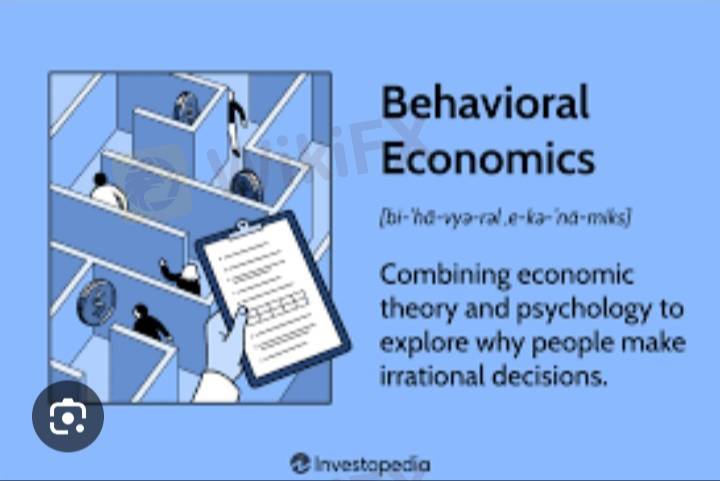
2025-02-12 18:30
IndustryBehavioral Economics:Understanding Consumer Choice
#firstdealofthenewyearastylz
Behavioral economics studies how psychological, social, and emotional factors influence consumer decisions. It combines insights from psychology and economics to understand why people make certain choices.
Key Concepts
1. *Bounded Rationality*: Consumers have limited information and cognitive abilities, leading to imperfect decision-making.
2. *Biases and Heuristics*: Mental shortcuts, such as confirmation bias and anchoring, influence consumer choices.
3. *Framing Effects*: The way information is presented (framed) affects consumer decisions.
4. *Loss Aversion*: Consumers prefer avoiding losses to acquiring gains.
5. *Social Influence*: Social norms, peer pressure, and social identity shape consumer behavior.
6. *Emotional Decision-Making*: Emotions, such as fear, pleasure, and nostalgia, play a significant role in consumer choices.
Implications for Businesses and Policymakers
1. *Nudge Theory*: Gentle nudges, such as default options and visual cues, can influence consumer behavior.
2. *Consumer Protection*: Understanding behavioral biases can inform policies to protect consumers from exploitation.
3. *Marketing Strategies*: Businesses can use behavioral insights to design effective marketing campaigns and improve consumer engagement.
4. *Public Health and Wellness*: Behavioral economics can inform interventions to promote healthy behaviors and improve well-being.
Real-World Applications
1. *Retirement Savings*: Automatic enrollment and default options can increase retirement savings rates.
2. *Healthcare*: Framing effects and social influence can be used to promote healthy behaviors.
3. *Sustainable Consumption*: Behavioral insights can inform strategies to reduce energy consumption and promote eco-friendly behaviors.
4. *Financial Literacy*: Understanding behavioral biases can improve financial decision-making and reduce debt.
By applying behavioral economics principles, businesses and policymakers can better understand consumer choices and develop effective strategies to promote positive behaviors and improve well-being.
Like 0
FX4036555298
Trader
Hot content
Industry
Event-A comment a day,Keep rewards worthy up to$27
Industry
Nigeria Event Giveaway-Win₦5000 Mobilephone Credit
Industry
Nigeria Event Giveaway-Win ₦2500 MobilePhoneCredit
Industry
South Africa Event-Come&Win 240ZAR Phone Credit
Industry
Nigeria Event-Discuss Forex&Win2500NGN PhoneCredit
Industry
[Nigeria Event]Discuss&win 2500 Naira Phone Credit
Forum category

Platform

Exhibition

Agent

Recruitment

EA

Industry

Market

Index
Behavioral Economics:Understanding Consumer Choice
 Hong Kong | 2025-02-12 18:30
Hong Kong | 2025-02-12 18:30#firstdealofthenewyearastylz
Behavioral economics studies how psychological, social, and emotional factors influence consumer decisions. It combines insights from psychology and economics to understand why people make certain choices.
Key Concepts
1. *Bounded Rationality*: Consumers have limited information and cognitive abilities, leading to imperfect decision-making.
2. *Biases and Heuristics*: Mental shortcuts, such as confirmation bias and anchoring, influence consumer choices.
3. *Framing Effects*: The way information is presented (framed) affects consumer decisions.
4. *Loss Aversion*: Consumers prefer avoiding losses to acquiring gains.
5. *Social Influence*: Social norms, peer pressure, and social identity shape consumer behavior.
6. *Emotional Decision-Making*: Emotions, such as fear, pleasure, and nostalgia, play a significant role in consumer choices.
Implications for Businesses and Policymakers
1. *Nudge Theory*: Gentle nudges, such as default options and visual cues, can influence consumer behavior.
2. *Consumer Protection*: Understanding behavioral biases can inform policies to protect consumers from exploitation.
3. *Marketing Strategies*: Businesses can use behavioral insights to design effective marketing campaigns and improve consumer engagement.
4. *Public Health and Wellness*: Behavioral economics can inform interventions to promote healthy behaviors and improve well-being.
Real-World Applications
1. *Retirement Savings*: Automatic enrollment and default options can increase retirement savings rates.
2. *Healthcare*: Framing effects and social influence can be used to promote healthy behaviors.
3. *Sustainable Consumption*: Behavioral insights can inform strategies to reduce energy consumption and promote eco-friendly behaviors.
4. *Financial Literacy*: Understanding behavioral biases can improve financial decision-making and reduce debt.
By applying behavioral economics principles, businesses and policymakers can better understand consumer choices and develop effective strategies to promote positive behaviors and improve well-being.
Like 0
I want to comment, too
Submit
0Comments

There is no comment yet. Make the first one.

Submit
There is no comment yet. Make the first one.